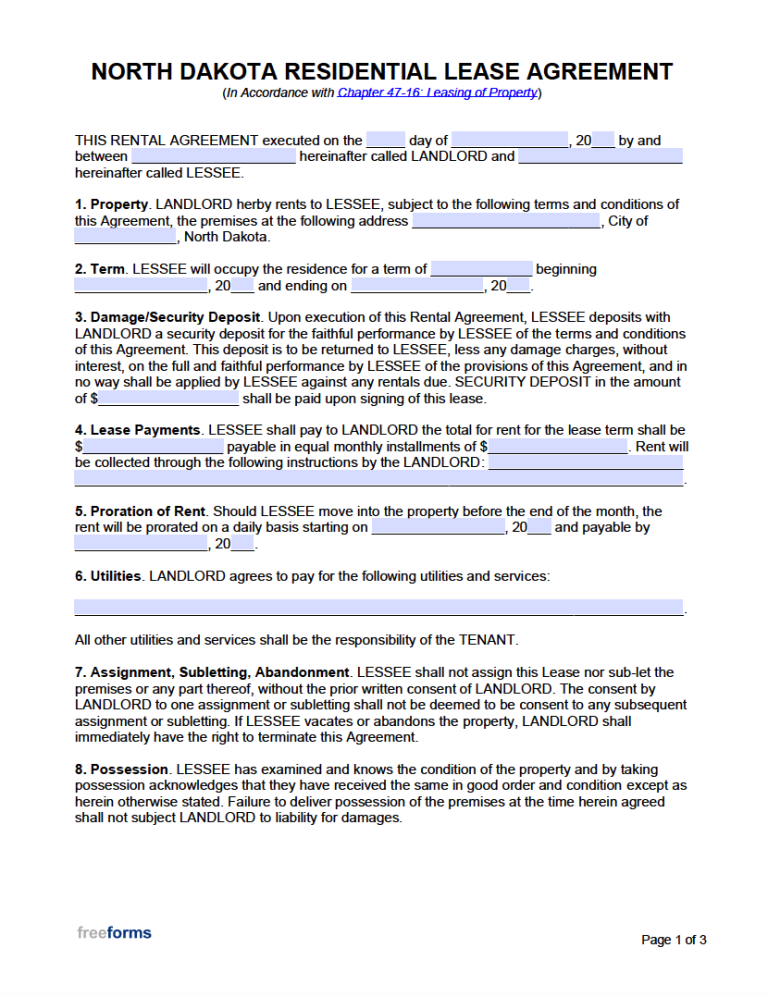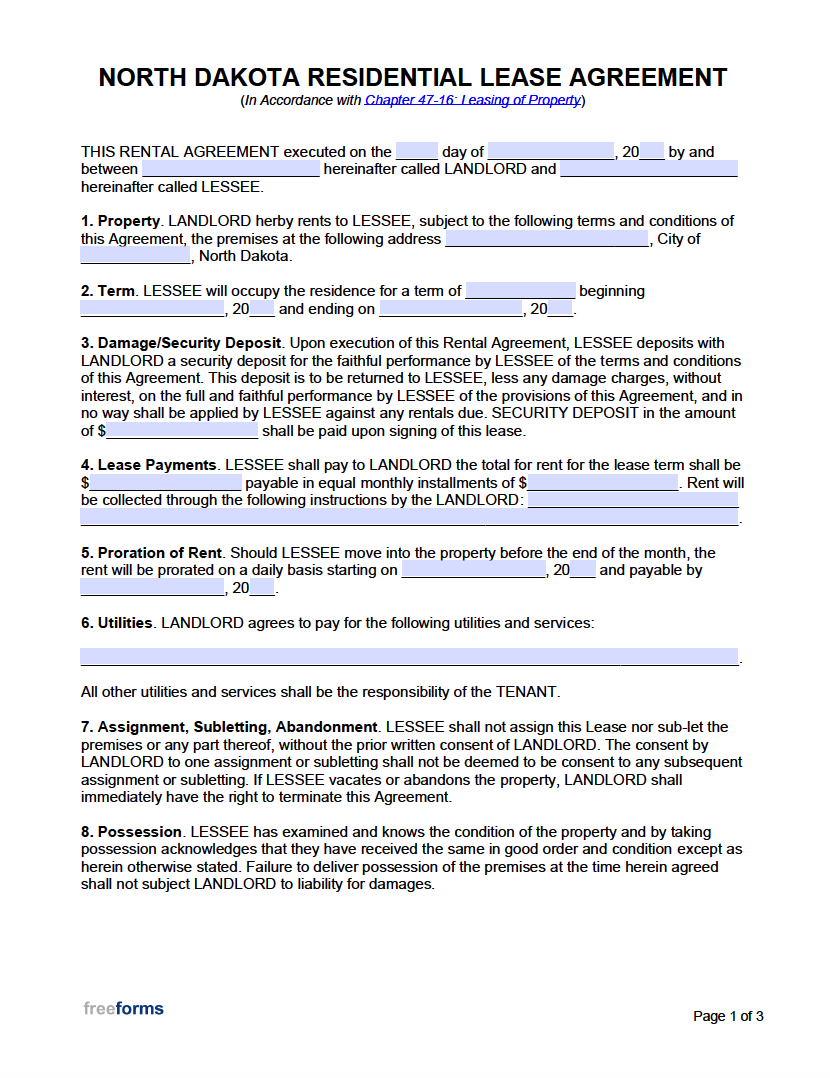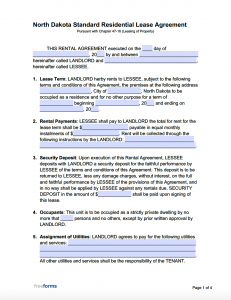Lease Agreements By Type (6)
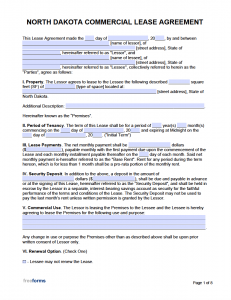 Commercial Lease Agreement: Details the facts of a real estate rental property between landlords and business entities accordingly. Commercial Lease Agreement: Details the facts of a real estate rental property between landlords and business entities accordingly.
Download: PDF, Word (.docx) |
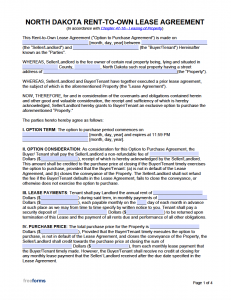 Lease to Own Agreement: Encompasses the information contained in a typical residential contract with a supplemental advantage of first refusal to purchase at the end of the leasing period. Lease to Own Agreement: Encompasses the information contained in a typical residential contract with a supplemental advantage of first refusal to purchase at the end of the leasing period.
Download: PDF, Word (.docx) |
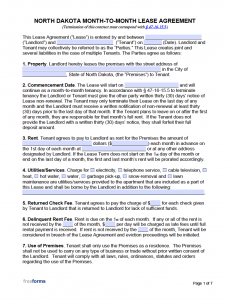 Month-to-Month Lease: Covers the relevant components of the exchange of funds for the use of a property with the option to end the agreement early by providing notice of thirty (30) days before termination. Month-to-Month Lease: Covers the relevant components of the exchange of funds for the use of a property with the option to end the agreement early by providing notice of thirty (30) days before termination.
Download: PDF, Word (.docx) |
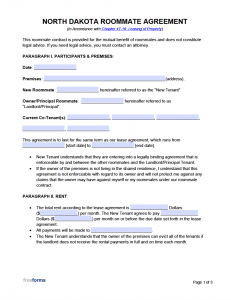 Roommate Agreement: Uses a rental contract to arrange for an individual to inhabit a segment of a residence for a specified amount of time. Roommate Agreement: Uses a rental contract to arrange for an individual to inhabit a segment of a residence for a specified amount of time.
Download: PDF, Word (.docx) |
|
Standard Lease Agreement Download: PDF, Word (.docx) |
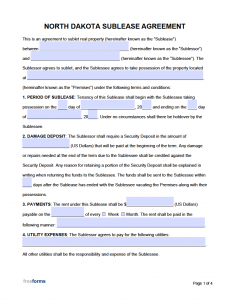 Sublease Agreement: Incorporates the information on a lease of a property to a written commitment from a leasing tenant to a secondary leasing sub-tenant. Sublease Agreement: Incorporates the information on a lease of a property to a written commitment from a leasing tenant to a secondary leasing sub-tenant.
Download: PDF, Word (.docx) |
Required Landlord Disclosures
Move-in Checklist (§ 47-16-07.2) – The state sanctions that any lease agreement must be accompanied by an endorsed checklist covering the condition of the property upon moving in. The checklist examines the state of the domicile’s exterior and interior to compare with the physical status of the property at the end of the leasing period.
Lead-Based Paint (42 U.S. Code § 4852d) – The health hazard created by coming into contact with lead-composed paint must be indicated for dwellings built in 1978 or earlier. An informational packet must be issued to the potential occupant, and a signature obtained stating notification of the possibility of exposure to the substance.
When is Rent Due?
Unpaid Rent: Landlords issue a notice of intent to evict when the rent is due, giving three days to pay. (NDCC § 47-32-01(4)), (NDCC § 47-32-02).
Late Fees
NSF Fees
Security Deposit Maximum ($)
Generally, landlords may demand up to one month’s security deposit; however may ask for up to two months’ security if:
- The potential tenant is a felon
- The potential tenant has a “judgment against them” for previous lease or rent violations. (NDCC § 47-16-07.1(1)).
Security Deposit Return
Itemized List: North Dakota requires landlords deducting from the security to specifically itemize each cost and the reason (NDCC § 47-16-07.1(3)).
Landlord’s Right to Enter
Landlords can enter a premises or other rental property without tenant consent in order to respond to an emergency (NDCC § 47-16-07.3).
Absence
Repair and Deduct
When a Tenant Terminates (early)
Domestic Violence: Victims can terminate the lease by notice by paying one month’s rent, as well as:
- Document their fear for safety
- Provide court orders (e.g., protection order)
- Explicitly state the date of termination
- Send the notice by fax, mail, or in person (NDCC § 47-16-17.1).
Military Service: Early lease termination is allowed by federal law whenever a service member receives a transfer or must deploy for duty. 50 USC 3955
Landlord Noncompliance: Tenants terminate by notice in specific cases of material noncompliance or habitability issues accordingly (NDCC § 47-16-13.1).
Landlord Harassment: While the state does not explicitly allow tenants to terminate over harassment, common law allows abandonment for constructive evictions (NDCC § 47-16).
Inhabitability: Tenants terminate over habitability; however, they give notice to repair and a reasonable chance to become code compliant (NDCC § 47-16-13).


